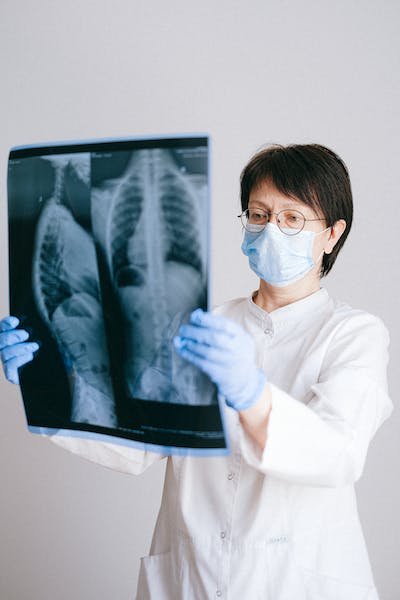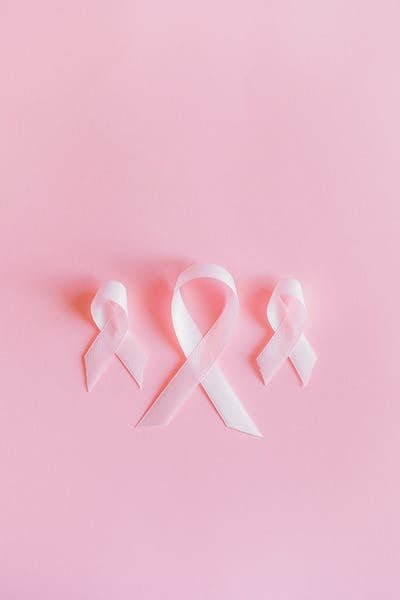Let's Discuss About Lung Cancer : The Silent Killer
Lung cancer is the third leading cause of cancer death in both men and women, after colorectal and prostate cancers. It is also the most common type of non-smokers’ lung cancer, accounting for about 87% of all non-smokers’ lung cancer cases. It usually occurs in people older than 40 and almost 90% of patients are smokers when they get it.
Even though there are several risk factors associated with lung cancer, it is still difficult to predict who will develop this disease and which individuals will be affected the most. Due to the many different causes of lung cancer, it can be hard to know what questions to ask and how to find answers. You might feel confused or even embarrassed if you have lung disease.
What to talk about when you have lung cancer?
Lung cancer is a disease that is biological in origin. It develops when your body produces too many cancer cells. As a result, lung cancer can be difficult to talk to others about. You should not feel pressured to talk about your diagnosis if you don’t want to. However, you should also be prepared to answer questions other people might have.
People often want to know more about lung cancer and what they can do to help prevent it. Even if you’ve been diagnosed with lung cancer, you are not alone. You can find support and resources to help you stay healthy and well. Talk to your healthcare provider for more information.
Ask questions first

The best way to find out what to talk about when you have lung cancer is to start with the questions you have. When you have lung cancer, you might have many questions about your diagnosis, treatment options, side effects of treatment, prognosis, and more. It’s a good idea to ask these questions before you meet with your healthcare provider.
For example, you might ask: What is the most common type of lung cancer? How would I know if I have it? What common symptoms should I watch for? What are my treatment options and how will they affect my other medical conditions?
What are the side effects and long-term risks of my treatment options? What is the best way to talk to my loved ones about my diagnosis since they might have many questions and concerns? What support services can I access? What resources are available?
Get more information before you meet with your doctor
Before you meet with your doctor, you might want to gather more information about your diagnosis. For example, you might want to find out: How many other people have this diagnosis? What is the prognosis? What treatments have been tried? And what is the status of research in this area?
This will help you to gain a better understanding of your diagnosis and to make more informed decisions about your treatment options. It’s also important to know more about the types of lung cancer. This will help you to better understand what stage your cancer is in and how it has progressed.
You can do this by reading about lung cancer, talking to your doctor, or getting a lung cancer diagnosis book. You can also use resources like the National Cancer Institute’s (NCI) Cancer Information Service. You can find information about lung cancer, including what it looks like and what the stages are. You can also find information about your treatment options, side effects, survival statistics, and more.

Learn more about the types of lung cancer
Once you know more about the types of lung cancer, you can also learn more about the types that affect you and your loved ones. This will help you to better understand your loved ones’ diagnoses and treatments. You can also use resources like the American Cancer Society’s (ACS) information about lung cancer to learn more about your diagnosis and treatment options.
You can also use the ACS’s Cancer Survivor Network to meet others who have been diagnosed with lung cancer and to make connections with other people who can help you to stay healthy and well.
You can also find communities on social media platforms like Facebook and Twitter that are designed to support people facing cancer diagnoses. These can be a great place to ask questions and get support from others who understand what you’re going through.
##Make a plan for how you’ll talk to others after your diagnosis
Once you have a better understanding of your diagnosis and treatment options, you can make a plan for how you’ll talk to others about your diagnosis. You might want to meet with your doctor or attend a lung cancer support group to learn more about your diagnosis and treatment options.
You can also speak with a social worker or counselor about how to best support others who are facing lung cancer diagnoses. You can also ask your loved ones for help. It’s important to remember that you don’t have to do everything by yourself when you have lung cancer. You can ask for help from others, whether it’s from your loved ones, friends, or counselors. Having a plan for supporting others, whether it’s your friends, family members, or others who you hire, can help you to stay as healthy as possible.
Conclusion
There is no doubt that lung cancer is a complex disease that is difficult to talk about. This is especially true if it has already spread to other parts of your body. However, with a bit of preparation, you can feel more prepared to talk to others about your diagnosis. The important thing is to remember that you are not alone and that there is help available.
• Links Consulted
(1). https://www.mayoclinic.org/diseases-conditions/lung-cancer/symptoms-causes/syc-20374620
(2). https://www.medicalnewstoday.com/articles/323701
(3). https://my.clevelandclinic.org/health/diseases/4375-lung-cancer
Congratulations @royalevidence! You have completed the following achievement on the Hive blockchain and have been rewarded with new badge(s):
Your next target is to reach 900 comments.
You can view your badges on your board and compare yourself to others in the Ranking
If you no longer want to receive notifications, reply to this comment with the word
STOPTo support your work, I also upvoted your post!
Check out the last post from @hivebuzz:
Support the HiveBuzz project. Vote for our proposal!
Thanks for your contribution to the STEMsocial community. Feel free to join us on discord to get to know the rest of us!
Please consider delegating to the @stemsocial account (85% of the curation rewards are returned).
Thanks for including @stemsocial as a beneficiary, which gives you stronger support.